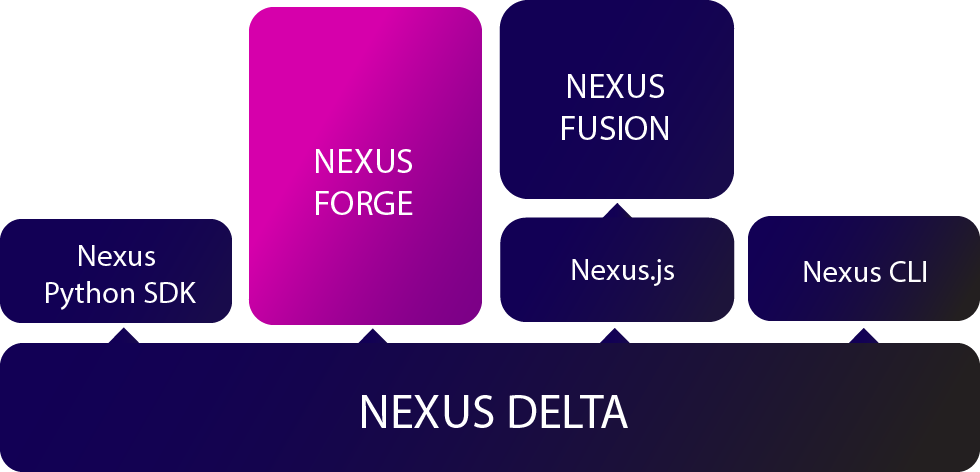Modelling
Modeling enables users to discover and reuse available data models (such as ontologies and schemas) by means of available types and data templates to shape and constraint a Knowledge Graph.
Forge offers a rich set of features to manage your data.
Modeling enables users to discover and reuse available data models (such as ontologies and schemas) by means of available types and data templates to shape and constraint a Knowledge Graph.
Resolving enables users to find, retrieve and link to master resources as a single source of truth for data models and data.
Mappings encode the logic on how to transform a specific data source and format into Resources that conform to a schema template of a targeted type.
Storing enables users to persist and manage data as resources in a configured Store.
Querying enables users to search for resources from a configured store by: i) identifier, ii) metadata filters and iii) store specific query language such as SPARQL 1.1 query.
Follow the Blue Brain Project on Twitter for the latest news and releases.
Blue Brain Nexus Forge is a domain-agnostic, generic and extensible Python framework enabling non-expert users to create and manage Knowledge Graphs by making it easy to:
Discover and reuse available knowledge resources such as ontologies and schemas to shape, constraint, link and add semantics to datasets.
Build Knowledge Graphs from datasets generated from heterogeneous sources and formats. Defining, executing and sharing data mappers to transform data from a source format to a target one conformant to schemas and ontologies.
Interface with various stores offering Knowledge Graph storage, management and scaling capabilities, for example Nexus Delta store or an In-memory store.
Validate and register data and metadata.
Search and download data and metadata from a Knowledge Graph.
